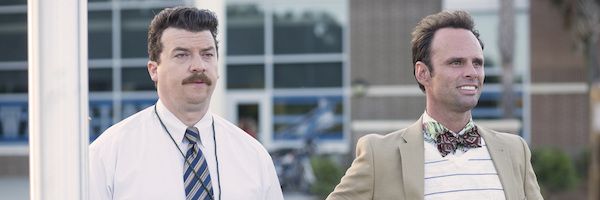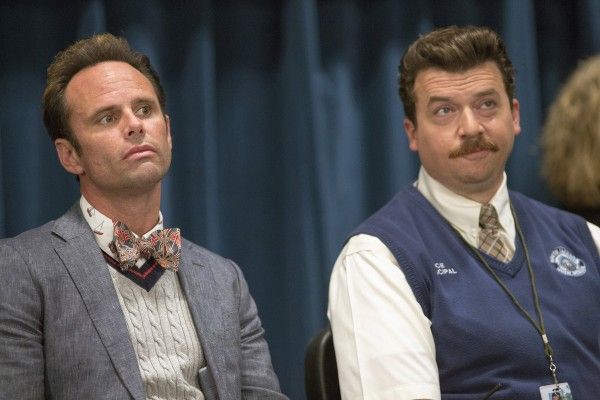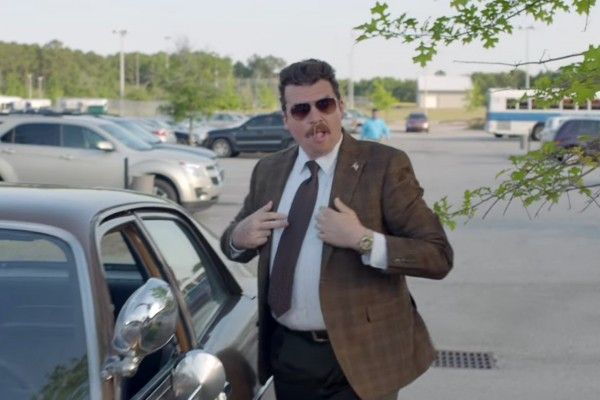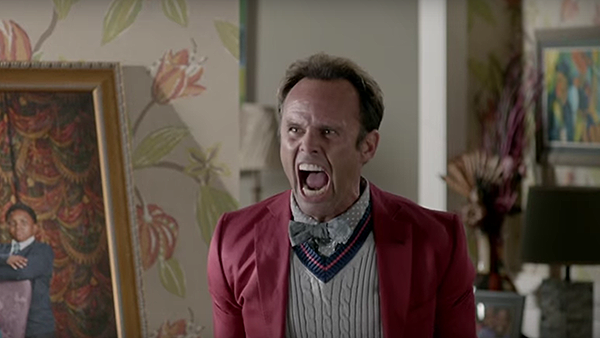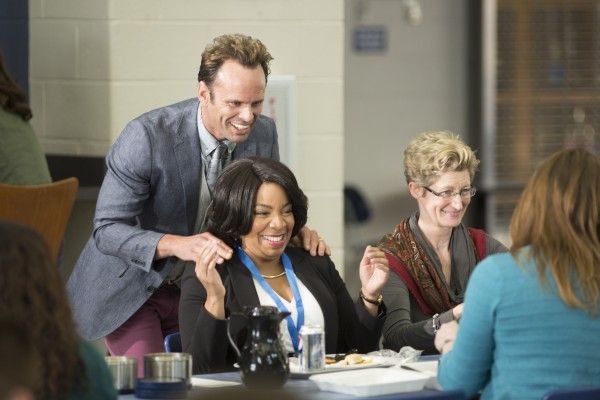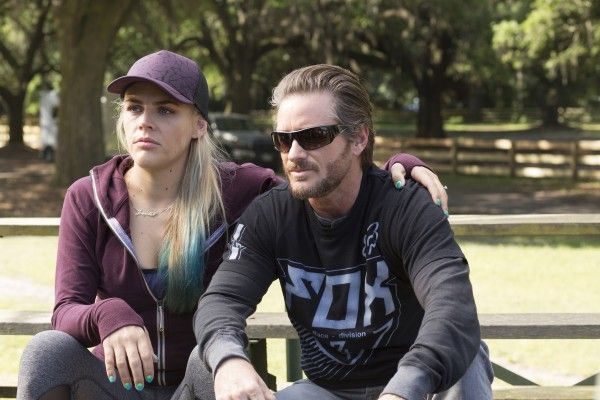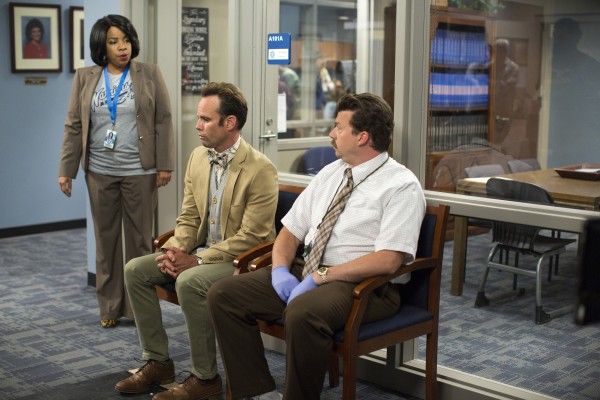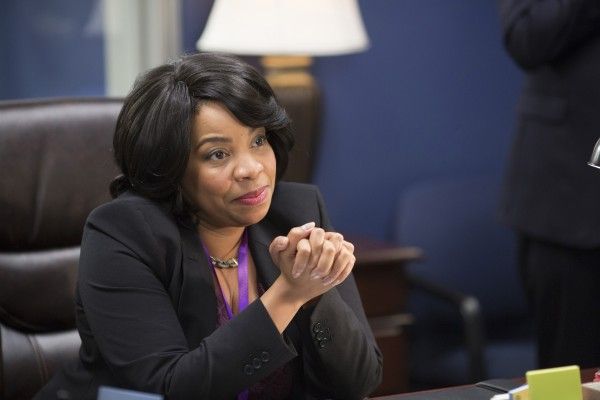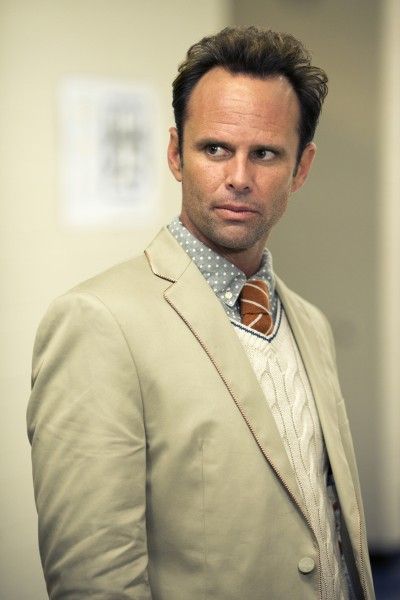There’s plenty of fun to be had at the expense of small-timers full of big egos. It can be in a theater troupe, like Waiting for Guffman, or about background actors like in the series Extras. HBO’s new comedy, Vice Principals, examines the lives of two frustrated men who vie against each other before teaming up in an attempt to take over the coveted position (in this world) of High School Principal. For them, the stakes could not be higher.
The series comes from Danny McBride and Jody Hill, who also co-created another HBO comedy, Eastbound and Down. But while Eastbound focused on the profane, megalomanic Kenny Powers (played for laughs by McBride), Vice Principal’s leads actually have some cause for empathy, and their alliance means far more than their feud. Unfortunately, that doesn’t become clear until deep into the first season.
The two Vice Principals in question are Neal Gamby (McBride) and Lee Russell (Walton Goggins), men with opposite lives and demeanors, but a shared hatred for one another. Gamby is divorced, though stays in contact with his ex-wife (Busy Philips) and her new husband (Shea Whigham), because of his daughter Janelle (Maya G. Love). Russell is married without children, though is constantly plagued by his screechy Korean mother-in-law and his loud neighbors.
The two find meaning and pleasure in their jobs, where the gregarious, bowtie-wearing Lee is well-loved by the faculty, and the intense, take-no-prisoners Gamby is feared by the students he constantly suspends. After the Lincoln High principal (played briefly by Bill Murray in a role you wish was more constant) leaves to take care of his sick wife, Gamby and Russell become trapped in battle. At first it’s against one another for the job, and then against Dr. Belinda Brown (Kimberly Hebert Gregory), who the school superintendent brings in as a kind of Principal ringer.
The two men would be primed to hate anyone put in the principal chair, but they particularly loathe Brown, against whom they privately make racist and misogynistic remarks. Brown isn’t perfect, but she becomes a kind of de facto villain, even though Gamby and Russell — who enact a string of crimes against her — are really the one whose actions should be loathed.
And that is largely the problem with Vice Principals. There are moments where Russell and Gamby’s reluctant alliance, and later, their personal lives, give the series the depth it desperately needs, but it’s fleeting. Instead, the first four episodes are clogged with a crude sense of humor that for the most part isn’t clever (like say, Veep) nor is it funny. Eastbound and Down tempered that callous aesthetic with Hill’s (and occasionally David Gordon Green’s) excellent and unique directing and a fantastic soundtrack, all lead by McBride’s own weird brand of charisma. In Vice Principals, it doesn’t come together as well.
Still, McBride continues to be stellar as the unrepentant, self-aggrandizing asshole character he’s played a number of other times, and Goggins brings his own strange quirks to the proceedings that compliment McBride well — most especially when they are allied. When the two are just trading sophomoric insults, only McBride’s signature delivery lands. And when other characters join in on the storm of profanities, they similarly feel forced or fall flat.
There are moments where Vice Principals captures something, and it’s mostly in relation to school politics and the students themselves (the best moment in the first five episodes is in that fifth episode — a true standout — where Gamby is forced to have sharing circle time with students he would rather throw in detention. But Gamby’s disgust at the idea is balanced beautifully with the kids’ confusion, and ultimately, vulnerability, which triggers something in Gamby. It’s not corny, it’s sharply rendered and also earned. But then the show ping pongs back to Gamby’s ill-fated affair with an unstable teacher who is treated as essentially inhuman by the show and by Gamby, and it feels lost again.
For fans of McBride’s work (and, frankly, Goggins as well, who does a great comedic turn here, especially with his reactions), Vice Principals is worth overlooking the other missteps, but it may not encourage many new disciples into the fold. It’s awkward more than funny, but its cringe humor should not be directed at Gamby’s buffoonery so much as some of the choices the script sometimes makes.
A scene that exemplifies all of these disparate parts come early in the series, when Gamby and Russell are in full destruction mode. The choreography here is beautiful, and it’s a wonderful juxtaposition to see the two become unhinged as they go bigger and bigger with their takedowns. But the scene is ultimately hollow fun, which is engaging in the short-term, but doesn’t encourage a long-term commitment to the show.
However, things aren’t going to be too long-term. McBride said recently that the series is based on a screenplay that he and Hill wrote back in 2006, and that it was elongated into 18 episodes (running for two finite seasons), all of which have already been filmed. That padding is definitely noticeable, diminishing some of the show’s better moments. And yet, there’s a draw to Vice Principals. Sometimes it’s about the frustrated lives of two awkward men, who misunderstand their strengths and put too much importance on their small administrative power. Sometimes it’s about unexpected friendship that forms through a shared hatred, but one that actually fosters a real bond. And sometimes, it’s just adults cursing at each other and breaking things in slow motion.
Rating: ★★★ — Proceed with cautious optimism

